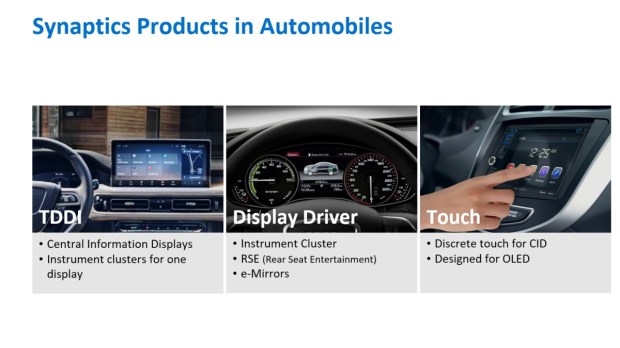He who holds the semiconductor supply, holds the key to the future, could very well be an understatement. In fact, the small chip, which powers everything from a small handheld device to cars to rockets, is touted to be the most important commodity for many more coming years. No doubt, there has been push globally as well as in India to invest in manufacturing semiconductors to meet the domestic requirements.
In a recent interaction with Financial Express, Michael Hurlston, President & CEO, Synaptics, the California-based developer of human interface hardware and software, including touchpads for computer laptops; touch, display driver, and fingerprint biometrics technology for smartphones; and touch, video and far-field voice technology for smart home devices and automotive, shares his views on why India should focus on creating Intellectual Properties (IP) and not just focus on manufacturing alone, growing demand for semiconductor from the automotive industry and plans for India. Edited excerpts.
What is your opinion on India’s ambition to incentivise and promote semiconductor manufacturing in the country to meet the growing global demand?
The easier thing for India is to develop IP (intellectual property). All the tools are available in India to become a strong provider of IP challenging the United States. The US Education system right now is not where the Indian education system is, and the number of engineers that the US Education system is churning out is far lower than the number of engineers coming out of India. Although manufacturing is getting headlines here, it is also in focus in the US too, and there is some activity in the US To build up manufacturing.
But I don’t know that that’s where anybody should be spending their time. China and Taiwan are the best manufacturing countries in the world. They’ve done an exceptionally good job. Assuming we can iron out some of the geopolitics. The right thing for the US Companies and the right thing for India is to focus on IP development to keep ahead of the competition. The number one thing we found in this geopolitical war is actually IP more than anything else. What’s slowing down the Chinese is the fact that there’s IP in the manufacturing area. There’s IP and circuit design, and that’s what kind of created the tension when that lead goes away. When, if that way goes away, I think it’s a much more significant problem than the manufacturing issue.
What kind of conversations are you having in India?
Almost every product that Synaptics has some contribution by the team here in Bengaluru. What’s unique is our wireless products, one of our most important product lines, see the India team work on it from cradle to grave.

In the automotive space, we are big on infotainment. I think more and more people are making their buying decisions even in India based on the entertainment system. Does it have the right Bluetooth? Does it have support for CarPlay? We are really supporting those infotainment systems and we are developing more chips that go around that system. Our strength is in touch, in display drivers, the thing that actually lights up the screen itself. And then in the video interface, we just introduced a series of products that connect the applications processor.
What do you think is lacking in the Indian semiconductor space?
In India the issue as you know is difficult to find true startups (read IP creating). That’s one of the things that I’ve been talking to with the Indian press is, you know, rather than see kind of a manufacturing economy or a fabrication economy built up, which is some of the things that your government is looking to do.
I think a much better thing to do would actually be starting IP-centric companies. It’s happening in software. We don’t see it as much in the hardware. And I think, one of the early guys to be involved in a semiconductor startup in India, but they’re not many. We will love to see more of a startup economy coming up here in India, which would enable us to start buying and investing more here.
The automotive industry is still struggling with semiconductor shortage issue, do you think that issue will be solved anytime soon?
I still think it’s a long-term problem. The issue right is all where the semiconductor investment is going into advanced processes meaning 3, 5 and 7 nanometres (nm) chips. Some automotive chips are on them. For example, the big applications processor that controls the entertainment system is a 3 or 5nm chip. But most of the devices in the car are using older process notes. Our chips that go in these infotainment systems are on 80nm processes. There’s no investment from the manufacturers on these older process nodes. This is a cyclical business right now. We are at a low point of the cycle because for the most part, there’s a lot of inventory problem and until that clears up, we’re going to be in a little bit of a low. But once it clears up. I think we are going to face shortages very quickly, particularly in the automotive business, because of the lack of investment in these trailing nodes that are really important for the automotive industry.



















